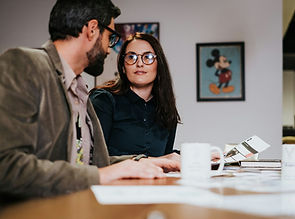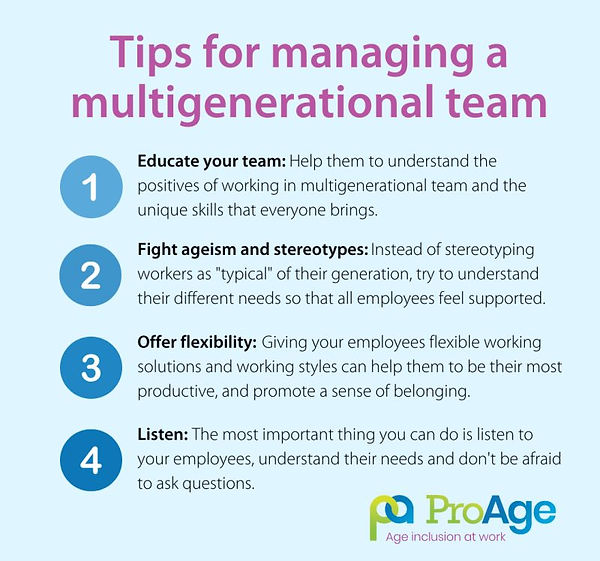
Ageism is alive and kicking......us in the pants!
Age is one characteristic we all have in common. Regardless of gender, race, or background, we share the common experience of growing older. Maybe it is because we all have an age, that we feel we have permission to speak about and judge someone based on their age in ways we would be appalled if we were to do the same based on their gender or race.
The Global Campaign to Combat Ageism tells us that 1 in 2 people worldwide are ageist against older people and defines the topic as follows:
“Ageism occurs when we use age to diminish someone's capacity or capability.”
While ageism is certainly something that has a significant impact on older workers, when it comes to recruitment opportunities and stereotypical attitudes about cruising towards retirement, we do not always realise that ageism occurs across the course of our lives, and it is intersectional.
During the past week, we ran two workshops of our Age and Anti-Ageism training. In both, the participants were super engaged, and we had a lively and interesting discussion about the impact of ageism and what we can do to make the workplace more age inclusive.
The fact that ageism is something that impacts us throughout our lives was borne out when 11 of the 18 participants in one workshop either agreed with the statement that they have experienced ageism during their daily lives or at work. Interestingly, all the people at that workshop said they were Generation X or Millennials, proving the point that ageism in not something confined to older people.

Photo by Andreea Avramescu on Unsplash
Ageist stereotypes impact us throughout our working lives. In applying for our first job, we may be perceived as lacking experience and as we get older, we are often perceived to be too experienced. The question is, are we too focused on how we define experience, and don’t we need to challenge our thinking that age is the primary definer of experience?
By not looking at an individual’s complementary skills and life experience, we are missing an opportunity to access the talent we need to innovate and succeed. Take for example a younger person who may not have much work experience, but has coached her football team and has joined the army reserves, has she not learned how to be a team player, motivate her colleagues and meet deadlines? Another example is an older worker who has been doing the same job for several years and is applying for a new role; are we assuming that his years of work experience provide him with the skills needed for his new role and maybe giving him an easier pass at getting the job that we would afford a younger person? The answer is not black and white but is it worth challenging our assumptions and talking to both candidates.
Age is also an intersectional issue that exacerbates disadvantages an individual may experience from having another protected characteristic. For example, the experience of an older woman and a younger man in the workplace can be two very different things. We need to have more open discussions about life events and changing responsibilities as we get older, if we are to be truly age inclusive at work.
Menopause is something many women go through during their working lives, yet the impact and how it affects women is something that is far too infrequently discussed and all too frequently misunderstood.
While menopause is something that impacts us based on our gender, caregiving is something we stereotypically speak about in the same discussion. This is largely because women have traditionally assumed caregiving roles more frequently than men. We need to break down this stereotype and make sure that we have open discussions about how we, as men and women, care for those we love. When we need time off to take a parent or a friend to an appointment or just spend some time with them, we should be able to have that discussion at work and come to some kind of arrangement so long as the work gets done.
I wanted to leave the workshop participants with some tips to create a more age inclusive workplace and shared this infographic. In reading through it, I was thrilled to hear that we had covered the main points during our discussion, showing that through the power of collective, we can always find a solution.
If you would like to find out more about our Age and Anti-Ageism training, send us an email to mike@proage.org.

